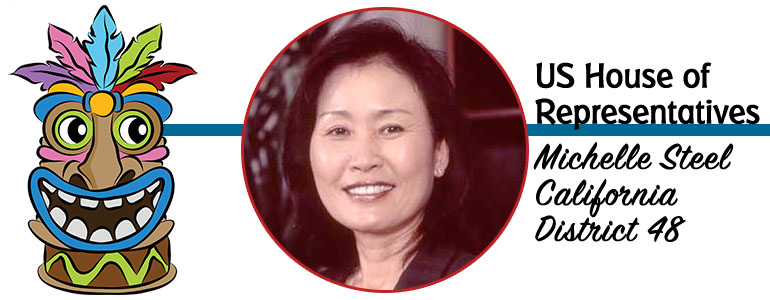
Representatives Michelle Steel (R-CA), Susie Lee (D-NV), Adrian Smith (R-NE), and Brad Schneider (D-IL) and Senators Steve Daines (R-MT) and Catherine Cortez Masto (D-NV) introduced the bipartisan and bicameral “Telehealth Expansion Act.” This legislation would make permanent a waiver created by the CARES Act to allow Americans with Health Savings Accounts (HSA) to access telehealth services without first having to meet their deductible.
“During the COVID-19 pandemic, telehealth became an important tool used by families, seniors, and rural communities to access quality, affordable health care,” said Steel. “The expiration of the CARES Act provision will negatively impact more than 32 million HSA enrollees and twenty percent of the American workforce, who currently enjoy the option to utilize telehealth. I am proud to lead this commonsense bipartisan measure to permanently expand access to telemedicine.”
“Millions of families rely on telehealth services to access the care they need. We should be making it easier, not harder, for families to use this critical health care tool. However, this access is on a deadline, and we cannot allow it to expire,” said Lee. “Instead of taking an avoidable step backward, it’s time to take a strong step forward and make telehealth access permanent by passing the Telehealth Expansion Act. Nevadans, and all Americans, should have every tool they need to access the health care services they rely on – and that’s just what this bill does.”
“Telehealth has become a key component of how Americans everywhere, especially those in rural areas, access the health care services they need,” said Smith. “The first dollar coverage waiver provided by the CARES Act has proven to be a useful resource, and I thank Representative Steel for her leadership to make this flexibility permanent.”
“Financial burdens should not prevent Americans from seeing their primary care doctor to discuss critical health care needs,” said Schneider. “Barriers to healthcare discourage too many Americans from getting the preventative care they need, leaving issues untreated and ultimately resulting in higher costs and poorer outcomes down the line. I appreciate Rep. Steel joining me to introduce this bipartisan legislation to improve the health care options available to patients with HSAs.”
“Telehealth helps ensure Montanans in every corner of our state have access to the care they need,” said Senator Daines. “Especially in rural states like Montana, we should be working to expand telehealth, not cut access when folks have come to depend on these resources.”
Background
The CARES Act, signed into law in March 2020, allowed HSA-qualified high-deductible health plans to cover telehealth services before reaching the deductible, and allowed individuals to choose and purchase the use of telehealth services outside their high-deductible health plan, without impacting their eligibility for an HSA.
Representative Steel advocated for an extension of the waiver, which was included in the FY22 and FY23 funding bill. The policy expires December 31, 2024. The Telehealth Expansion Act would make this flexibility permanent.
The Telehealth Expansion Act is supported by Orange County Business Council, National Association of Benefits & Insurance Professionals Orange County Chapter, ABA Health Savings Account Council, Alliance for Connected Care, Alliance to Fight for Health Care, American Benefits Council, American Telemedicine Association, Americans for Prosperity, America’s Health Insurance Plans, Business Group on Health, Corporate Health Care Coalition, Health Innovation Alliance, Healthcare Leadership Council, Included Health, National Association of Benefits and Insurance Professionals, National Retail Federation, National Taxpayers Union, 98point6, Noom, One Medical, Partnership for Employer-Sponsored Coverage, Partnership to Advance Virtual Care, Providence, Society for Human Resource Management, Teladoc, The ERISA Industry Committee, Transcarent, National Federation of Independent Businesses, Americans for Prosperity, and Corporate Health Care Coalition.
